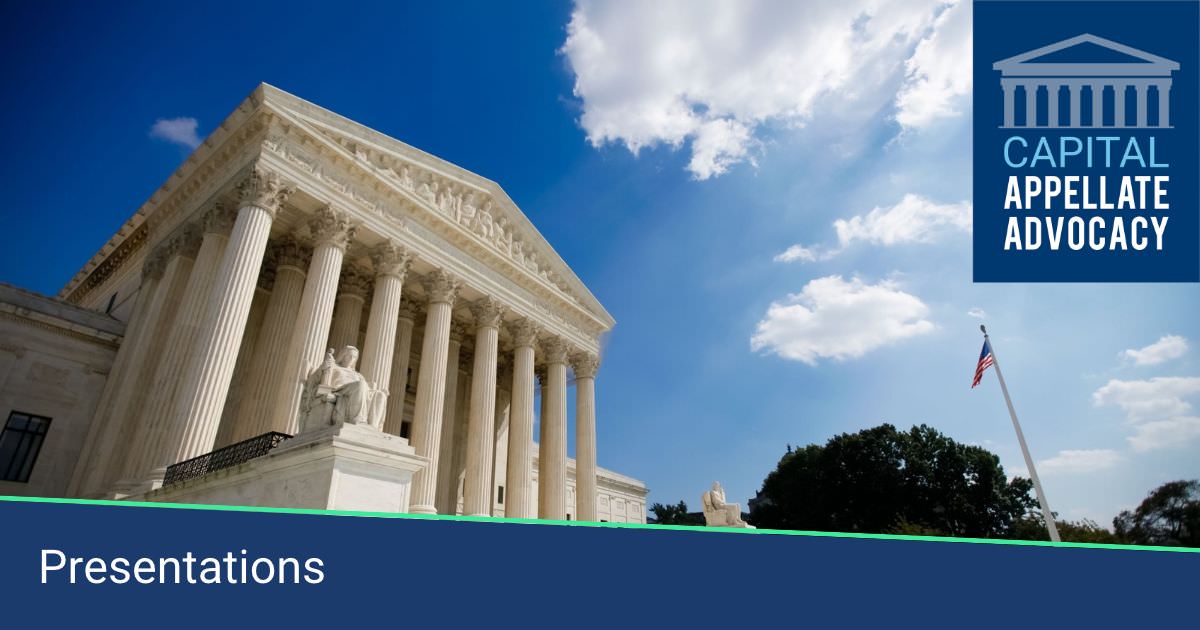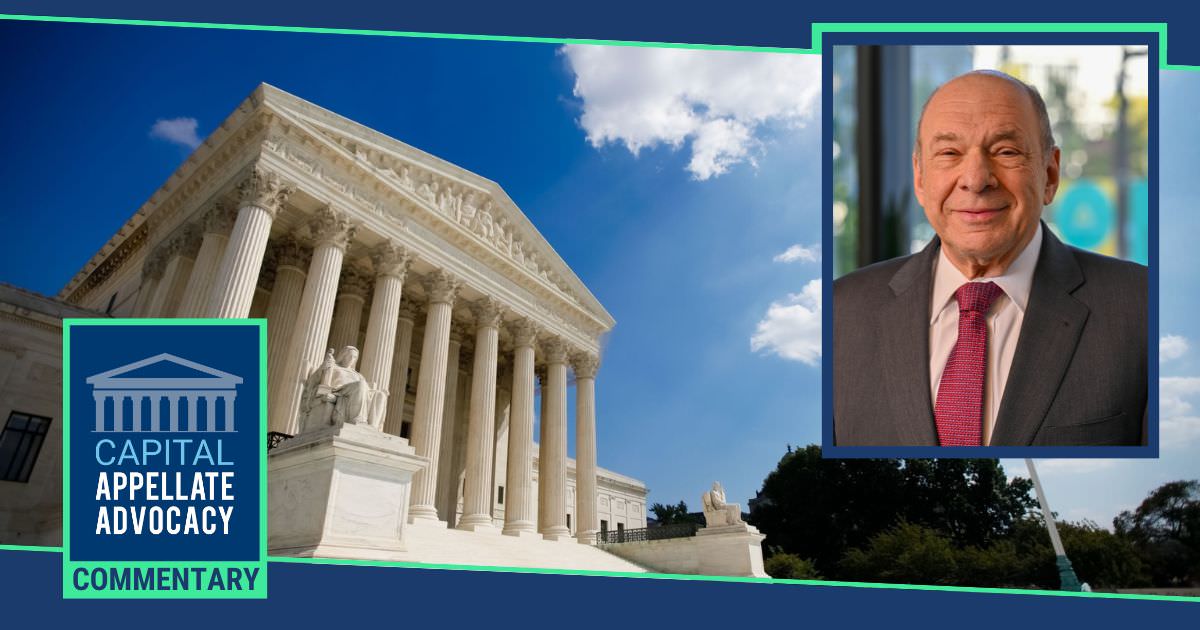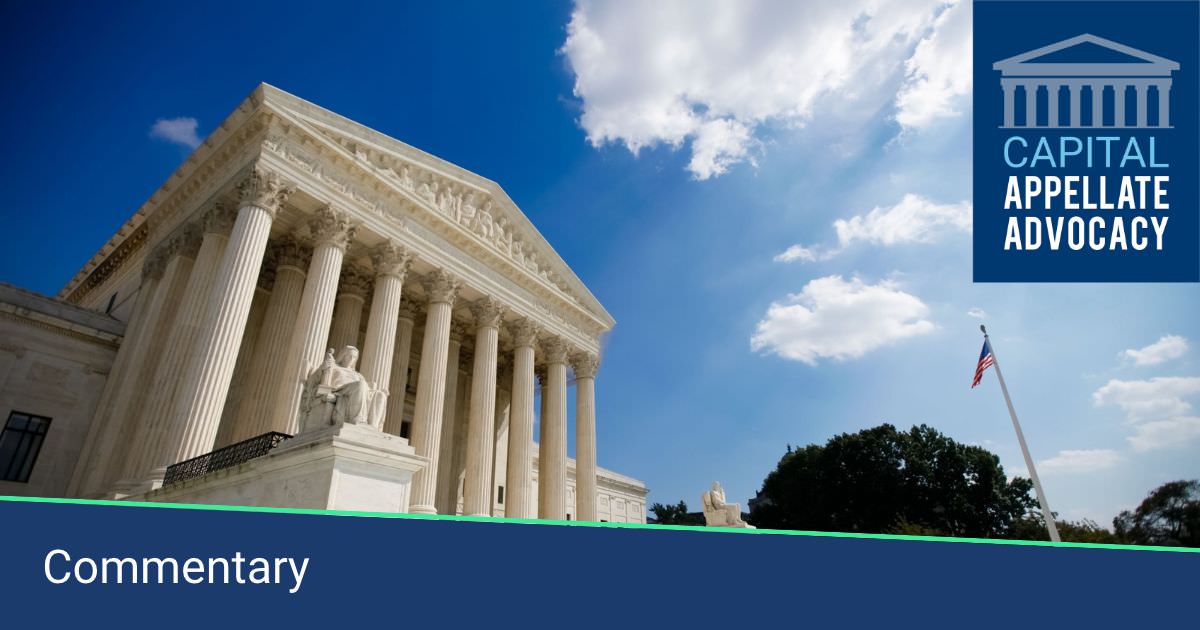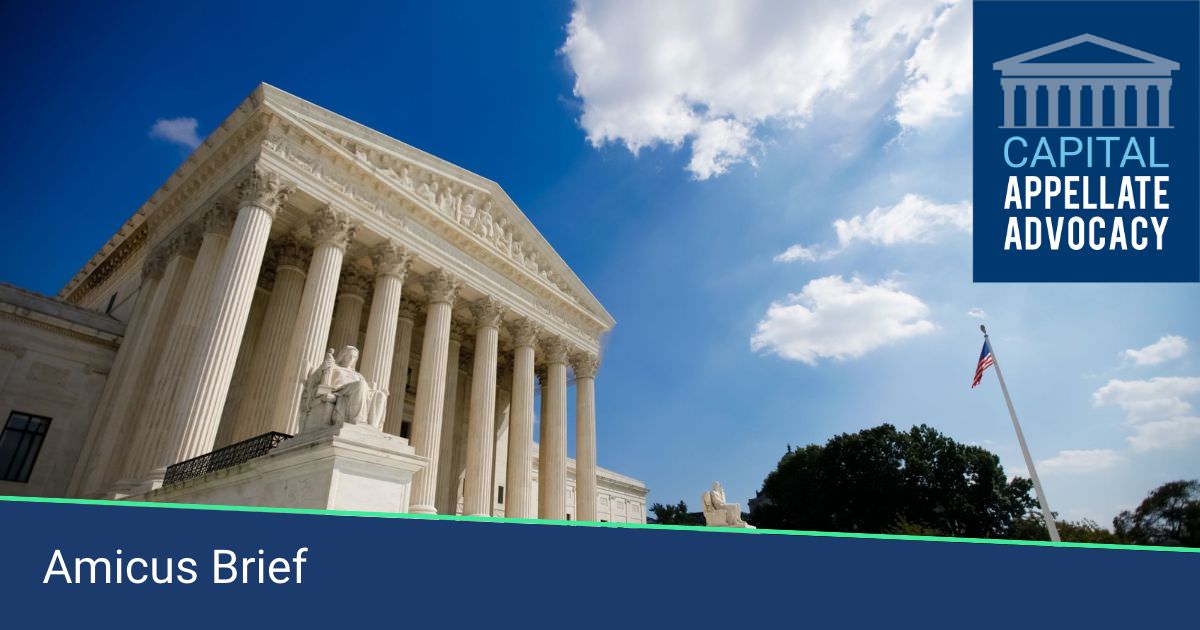Podcast: Supreme Court Opinion Undermines Integrity of FCA Qui Tam Scheme
At the invitation of The Federalist Society, Larry Ebner, founder of Capital Appellate Advocacy PLLC, conducted a 45-minute teleforum on the shortcomings and practical impact of the Supreme Court’s December 6, 2016 opinion in State Farm Fire & Casualty Co. v. United States ex rel. Rigsby, No.15-513. The Court unanimously held that dismissal is not required […]
Podcast: Supreme Court Opinion Undermines Integrity of FCA Qui Tam Scheme Read More »




